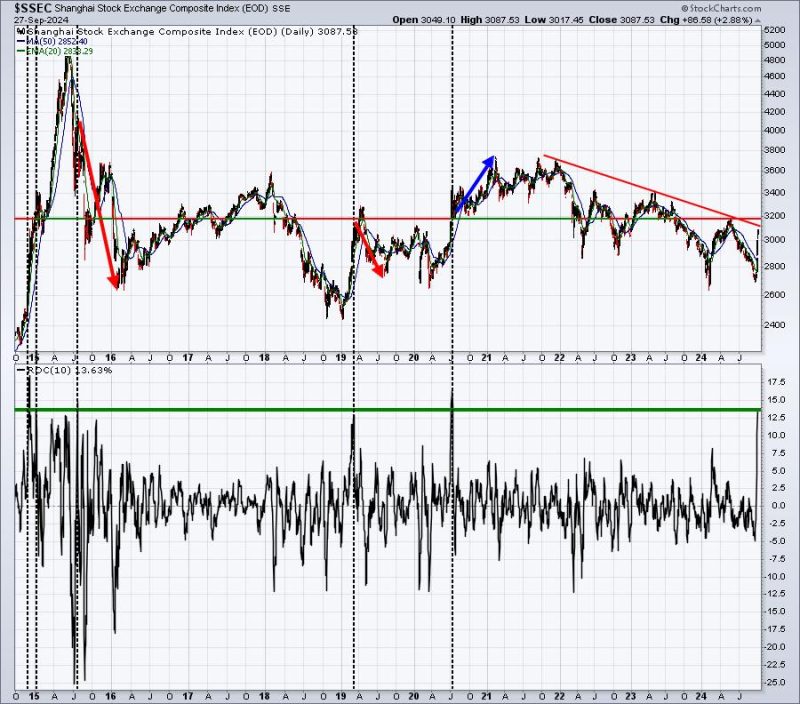The recent surge in the Chinese stock market has left investors curious about the sustainability of this newfound strength. With the Shanghai Composite Index registering significant gains in the past week, many are questioning whether this trend will continue or if a correction is looming on the horizon. Let’s delve into some key factors that could influence the future performance of the Chinese market.
One crucial aspect to consider is the ongoing trade tensions between the United States and China. The escalating trade war has created uncertainty in global markets, including China. Any breakthrough in negotiations or further tariffs imposed by either side could have a substantial impact on Chinese stocks. Investors will closely monitor trade talks and any developments that could either boost or dampen market sentiment.
Additionally, China’s economic growth trajectory is a significant driver of its stock market performance. The country’s GDP growth has been slowing down in recent years, raising concerns about the health of the economy. Factors such as industrial production, retail sales, and fixed-asset investment will be closely watched to gauge the economy’s strength. Any signs of a slowdown could weigh on the stock market and erode investor confidence.
Furthermore, the Chinese government’s efforts to stimulate the economy through monetary and fiscal policies could provide support to the stock market. Measures such as interest rate cuts, tax cuts, and infrastructure spending could boost economic growth and investor sentiment. Investors will be keen to see how effective these policies are in supporting the overall market performance.
Another factor to consider is the influence of global macroeconomic conditions on the Chinese market. Events such as the Federal Reserve’s monetary policy decisions, geopolitical tensions, and global economic indicators can all impact investor sentiment and capital flows. Any significant developments in these areas could sway the direction of the Chinese stock market.
Moreover, the performance of specific sectors within the Chinese market will also play a key role in determining its overall strength. Sectors such as technology, consumer goods, and financials are closely monitored by investors for signs of growth and profitability. Changes in sectoral performance could drive market movements and shape investor expectations.
In conclusion, while the recent uptick in the Chinese stock market is encouraging, there are several factors that could influence its sustainability. Trade tensions, economic growth prospects, government policies, global macroeconomic conditions, and sectoral performance all play a crucial role in shaping the market’s trajectory. Investors should remain vigilant and stay informed about these key factors to make informed decisions in an ever-changing market environment.

